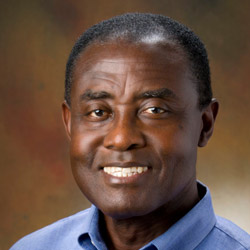Partnership Calls on Policymakers to Implement Proposals in 2020 Landmark Report
Today, in recognition of World Sickle Cell Day on June 19th, the Sickle Cell Disease Association of America announced it has joined the newly formed Sickle Cell Disease Partnership. The Partnership is comprised of 15 organizations representing a diverse cross-section of patient advocates, health care providers, health insurers, biopharmaceutical companies and others committed to improving the lives and outcomes of individuals living with Sickle Cell Disease.
“For too long, our nation has turned a blind eye to the devastating toll of Sickle Cell Disease on the lives of 100,000-plus Americans and their families. Today, one in 13 African Americans carry the trait for Sickle Cell, meaning their children are at risk for having the disease,” said Dr. Brett Giroir, Senior Advisor, Sickle Cell Disease Partnership. “The majority of people living with Sickle Cell Disease lack basic access to care, while our health care infrastructure and investments in research have failed to keep pace with the desperate need for treatment. It’s time for our nation’s leaders to prioritize individuals with Sickle Cell Disease and implement the recommendations of The National Academies’ 2020 Strategic Plan and Blueprint for Action.”
Coalition members, including SCDAA, are calling on Congress and the Administration to act with urgency to adopt The National Academies’ policy recommendations outlined in its landmark 2020 report, “Addressing Sickle Cell Disease: A Strategic Plan and Blueprint for Action.”
About the Sickle Cell Disease Partnership
The Sickle Cell Disease Partnership is a multi-sector collaboration of health care stakeholders committed to advancing actionable federal health care policies that will improve the lives of patients living with Sickle Cell Disease. The Partnership’s main objective is to work collaboratively across the Sickle Cell Disease community to translate the recommendations of the National Academies’ landmark 2020 report into legislative and administrative actions in Congress and the Executive Branch. The Sickle Cell Disease Partnership is convened and managed by Leavitt Partners, an HMA company.
About the Sickle Cell Disease Association of America (SCDAA)
SCDAA advocates for people affected by sickle cell conditions and empowers community-based organizations to maximize quality of life and raise public consciousness while advancing the search for a universal cure. The association and more than 50 member organizations support sickle cell research, public and professional health education and patient and community services.
About Sickle Cell Disease
Sickle Cell Disease is a rare, genetic blood disorder that primarily affects Black individuals. Sickle Cell Disease is inherited when a child receives two sickle cell genes—one from each parent. A person with the disease is born with it; people cannot catch it from being around a person who has it. Sickle Cell Disease affects an estimated 100,000 Americans and can cause pain and other serious problems such infection, acute chest syndrome, lung problems, severe pain, and stroke.
Healthy red blood cells are round, and they move through small blood vessels to carry oxygen to all parts of the body. In someone who has Sickle Cell Disease, the red blood cells become hard and sticky and look like a C-shaped farm tool called a “sickle.” The sickle cells die early, which causes a constant shortage of red blood cells. Also, when they travel through small blood vessels, they get stuck and clog the blood flow.
This can cause pain and other serious problems such as infection, acute chest syndrome, lung problems and stroke. Learn more about Sickle Cell Disease here.
Contact Us
To learn more about the Sickle Cell Disease Partnership, please visit www.sicklecellpartnership.org. Members of the media can reach our press office at: communications@sicklecelldisease.org.





 We are devastated to learn of the death of Dr. Kwaku Ohene-Frempong on Saturday, May 7, 2022. Dr. Ohene-Frempong was a true leader in the sickle cell community and dedicated his life and career to working with SCD. He held many roles on the Sickle Cell Disease Association of America board of directors over the years, including chief medical officer, board chair and board member emeritus. He also sat on the SCDAA Medical and Research Advisory Committee. His presence will be sorely missed in our organization and in the community at large.
We are devastated to learn of the death of Dr. Kwaku Ohene-Frempong on Saturday, May 7, 2022. Dr. Ohene-Frempong was a true leader in the sickle cell community and dedicated his life and career to working with SCD. He held many roles on the Sickle Cell Disease Association of America board of directors over the years, including chief medical officer, board chair and board member emeritus. He also sat on the SCDAA Medical and Research Advisory Committee. His presence will be sorely missed in our organization and in the community at large.